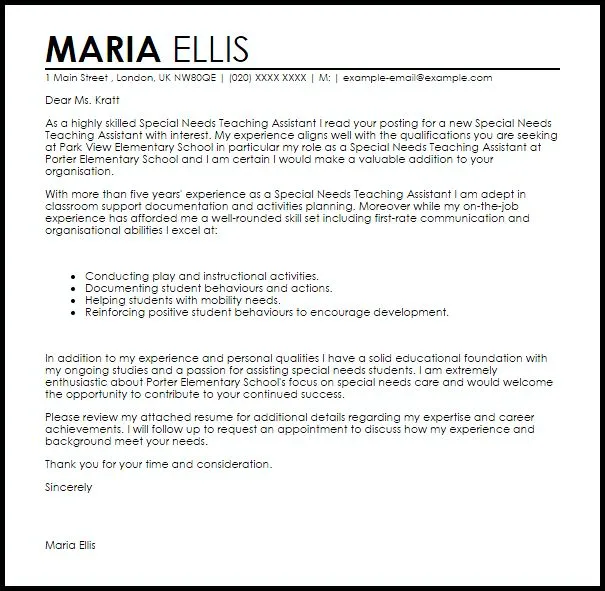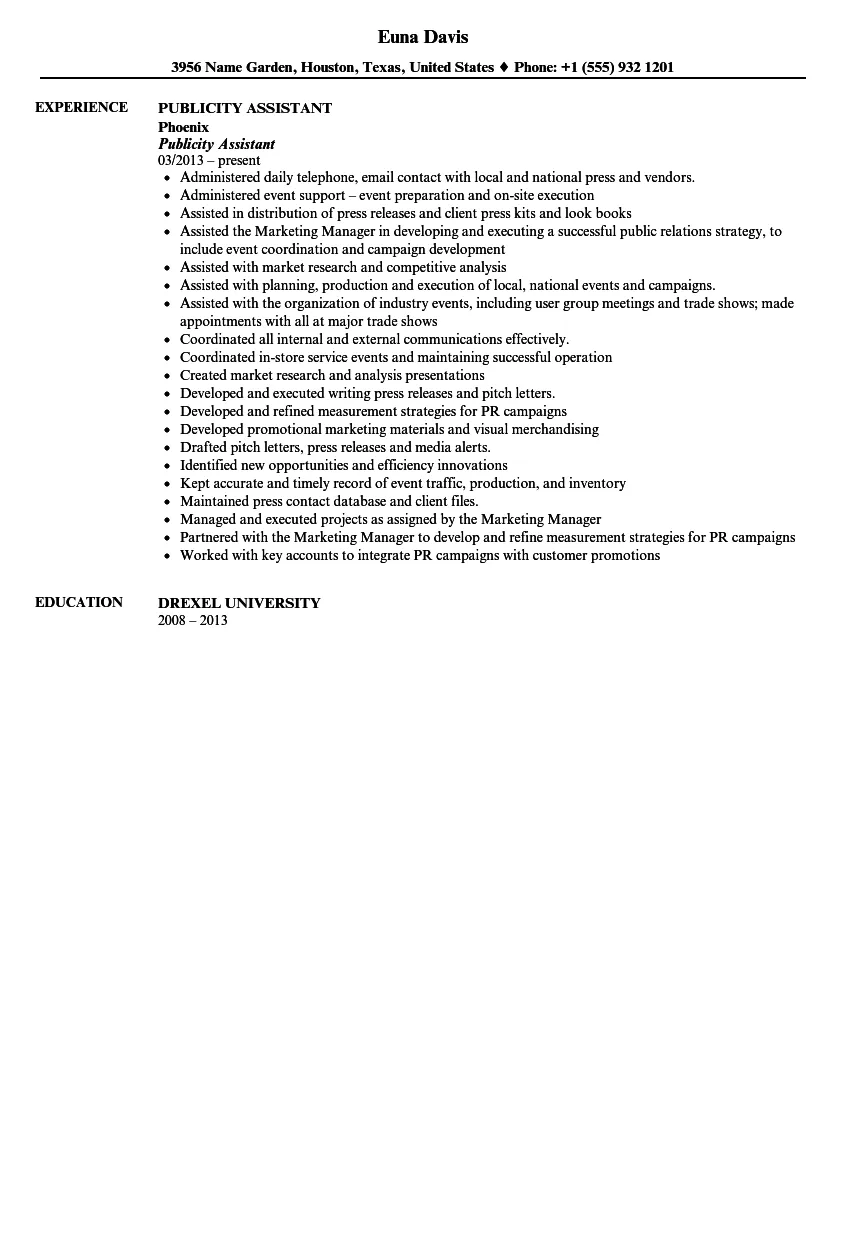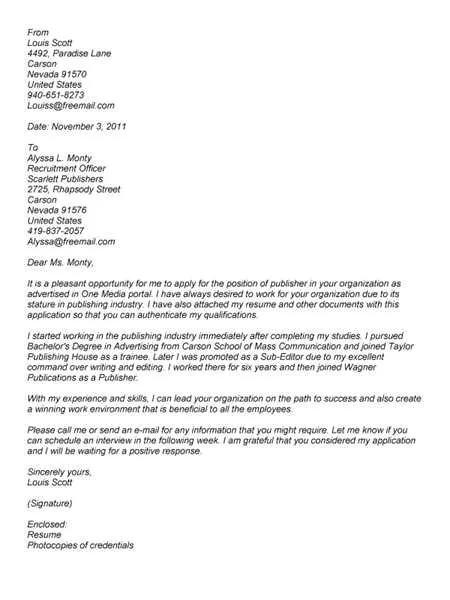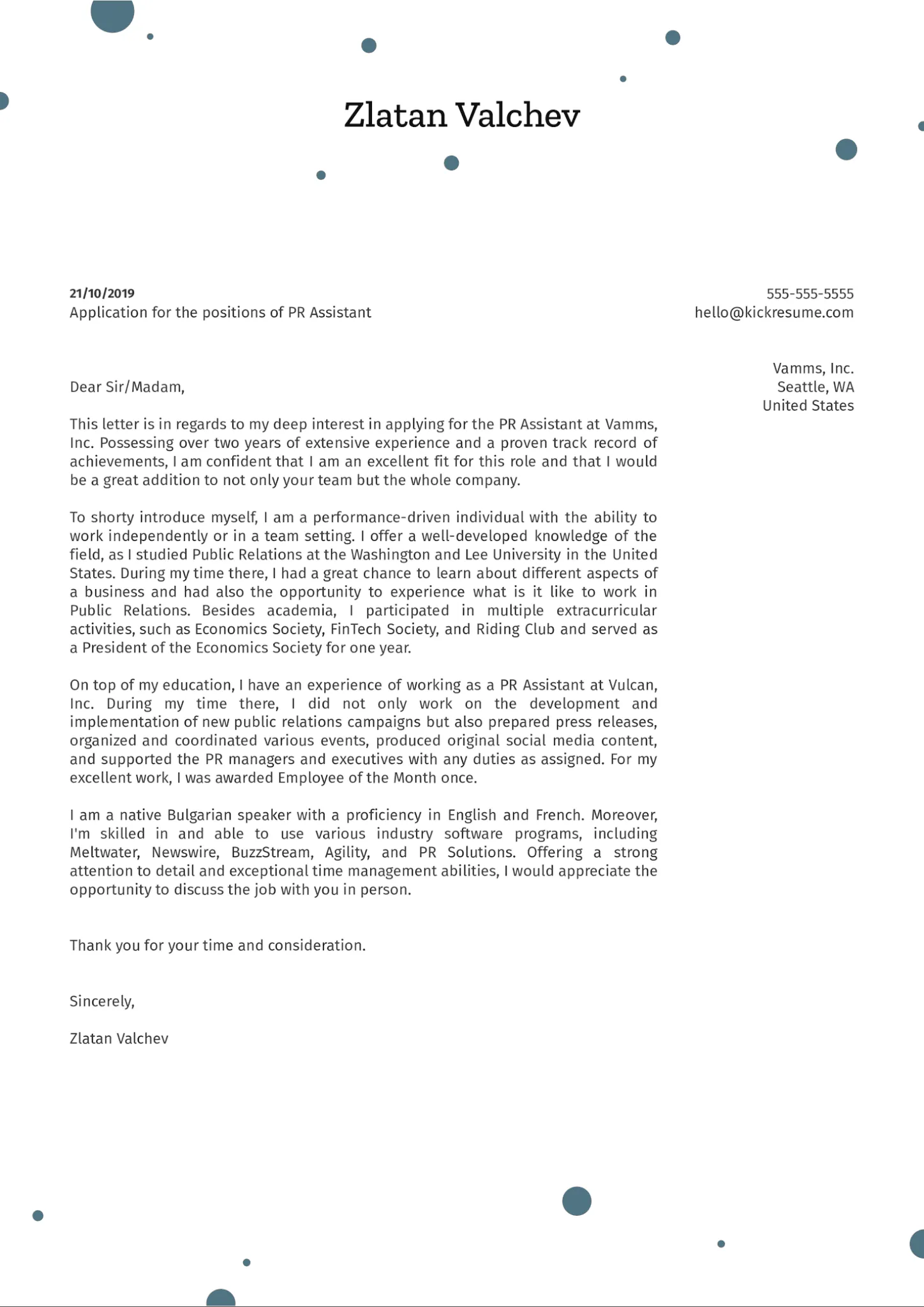Understanding the Importance of a Publicity Assistant Cover Letter
A well-crafted publicity assistant cover letter is your first opportunity to make a positive impression on a potential employer. It’s your chance to introduce yourself, highlight your relevant skills and experience, and demonstrate your passion for the field of publicity. Unlike a resume, which provides a factual overview of your work history, a cover letter allows you to tell a story, explain your motivations, and connect with the hiring manager on a more personal level. In a competitive job market, a strong cover letter can set you apart from other applicants, showcasing your personality and enthusiasm, and ultimately, increasing your chances of landing an interview. A generic or poorly written cover letter can have the opposite effect, immediately dismissing your application. Therefore, investing time and effort into crafting a compelling cover letter is essential for any aspiring publicity assistant.
Key Elements of a Standout Publicity Assistant Cover Letter
To write a standout cover letter, you must include several key elements. Begin with a professional header that includes your contact information and the date. Address the letter to the hiring manager, if possible; this shows that you’ve taken the time to research the company. In the introduction, clearly state the position you’re applying for and how you learned about the opportunity. The body of the letter should highlight your relevant skills and experiences, providing specific examples of your achievements. Demonstrate your passion for publicity and your understanding of the industry. Tailor your letter to the specific job description, emphasizing the skills and qualifications that the employer is seeking. The conclusion should reiterate your interest in the position and include a call to action, such as requesting an interview. Proofread your letter carefully for any grammatical errors or typos before submitting it.
Your Contact Information and Introduction

Start your cover letter with a clean and professional header. This should include your full name, phone number, email address, and, optionally, your LinkedIn profile URL. Following the header, include the date. Then, address the letter to the hiring manager by name, if you know it. Researching the company and finding the hiring manager’s name demonstrates your initiative and attention to detail. The introduction should clearly state the position you’re applying for and where you saw the job posting. Briefly explain why you’re interested in the role and the company, setting the tone for the rest of your letter. Avoid generic opening lines; instead, try to create a hook that captures the reader’s attention and makes them want to learn more about you. This initial impression is crucial, so take the time to craft a compelling introduction that showcases your enthusiasm and professionalism.
Highlighting Your Relevant Skills and Experience
The body of your cover letter is where you highlight your relevant skills and experience. Review the job description carefully and identify the key skills and qualifications the employer is seeking. Provide specific examples of how you’ve demonstrated these skills in your previous roles or experiences. Quantify your achievements whenever possible; for example, if you managed social media accounts, mention the percentage increase in followers or engagement. Use action verbs to describe your accomplishments, such as ‘managed,’ ‘coordinated,’ ‘created,’ or ‘implemented.’ Tailor your examples to the specific requirements of the job, ensuring that your cover letter is not a generic overview of your work history but a targeted showcase of your abilities and potential. Focus on experiences that align with the responsibilities of a publicity assistant, such as writing press releases, media outreach, event planning, or social media management.
Showcasing Your Passion for Publicity
Employers want to hire individuals who are genuinely passionate about their work. In your cover letter, express your enthusiasm for the field of publicity and the specific company you’re applying to. Explain what excites you about the role and the opportunity to contribute to their team. Mention any specific campaigns or projects that have inspired you, or any aspects of the company’s work that resonate with you. Demonstrate your understanding of the importance of publicity in building brand awareness and achieving business goals. Share your career aspirations and how this role aligns with your long-term goals. Let your personality shine through and show that you’re not just looking for a job, but a career in publicity. A sincere expression of your passion can make a lasting impression on the hiring manager and show your genuine interest in the opportunity.
Emphasizing Your Knowledge of the Industry

Demonstrate your knowledge of the publicity industry by referencing current trends, successful campaigns, or relevant media outlets. Mention any industry-specific software or tools that you are familiar with, such as media monitoring platforms or content management systems. Show that you understand the role of a publicity assistant in the broader marketing and communications landscape. Discuss your understanding of media relations, public relations strategies, and the importance of building strong relationships with journalists and influencers. If you have any relevant certifications or training, be sure to mention them. Showing you have a solid understanding of industry best practices and current events will make you stand out to recruiters. Staying informed about industry trends will also show your commitment to professional development and your desire to excel in the field of publicity.
Quantifying Your Achievements
Whenever possible, quantify your achievements to provide concrete evidence of your accomplishments. Instead of simply stating that you ‘increased social media engagement,’ specify the percentage increase or the number of new followers you gained. If you managed a successful media campaign, provide details on the number of media mentions or the reach of the coverage. If you organized an event, mention the number of attendees or the positive feedback received. Using numbers and metrics makes your accomplishments more impactful and easier for the hiring manager to understand. It also demonstrates your ability to measure results and track progress. Quantifying your achievements helps to illustrate your value and effectiveness in previous roles, allowing you to stand out from the other applicants. This approach also provides concrete examples of how your skills can benefit the company.
Tailoring Your Cover Letter to the Job Description
It is vital to tailor your cover letter to each job application. Customize your letter to match the specific requirements and preferences outlined in the job description. Highlight the skills and experiences that align with the employer’s needs. Use keywords from the job description to demonstrate your understanding of the role and your ability to meet their expectations. Research the company and its values to ensure that your cover letter reflects your understanding of their mission and culture. Avoid sending generic cover letters; instead, take the time to customize each application to demonstrate your genuine interest and suitability for the position. Tailoring your cover letter makes your application more compelling and demonstrates your attention to detail and commitment to the opportunity.
Proofreading and Formatting

Before submitting your cover letter, proofread it carefully for any grammatical errors, typos, or formatting issues. Errors can make your cover letter look unprofessional and can undermine your credibility. Use a professional font and formatting style that is easy to read. Ensure that your paragraphs are well-structured and that your letter is free from any inconsistencies in style or tone. Consider having a friend or colleague review your cover letter to catch any errors that you might have missed. Pay close attention to details such as spelling, grammar, punctuation, and capitalization. A polished and error-free cover letter will show that you pay attention to detail and value your work, leaving a positive impression on the reader.
Writing a Strong Call to Action
Conclude your cover letter with a strong call to action. Reiterate your interest in the position and express your enthusiasm for the opportunity to contribute to the company. State your availability for an interview and how you can be reached. Thank the hiring manager for their time and consideration. Make it clear that you are eager to learn more about the role and the company. By including a clear and concise call to action, you encourage the hiring manager to take the next step in the hiring process. A strong call to action is a way to leave a lasting impression, signaling your interest, confidence, and eagerness to move forward. It is a key aspect of making a successful cover letter.
